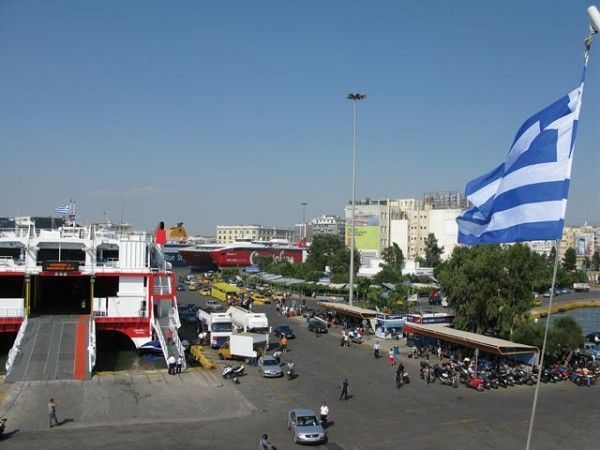Easter Holiday Travel Disrupted By Crisis, Strikes And High Fares
The effects of Greece’s economic crisis (pay cuts, job and pension cuts, tax hikes) coupled with increased ferry ticket prices and a 48-hour strike of seamen, was enough for many Greeks to either change their holiday plans or just stay home last month during the Easter holiday.
According to official data, sea travel this year dropped some 60 percent compared to 2011. Also, data from highway tollbooths showed reduced traffic compared with previous years since many Greeks preferred to spend their Easter holidays in the city.

Calmness at Piraeus Port during the Easter period due to the Panhellenic Seamen’s Federation’s (PNO) strike. According to reports, especially hit by the strike were islands usually not frequented by foreign visitors and dependent on domestic tourism (such as Syros, Naxos, Tinos, Patmos). PNO organized the strike to protest government plans to incorporate their social insurance fund into Greece’s main healthcare provider EOPYY (National Organization for the Provision of Health Services).
Before the Easter break (Holy Week: 9-14 April, Easter Sunday: 15 April), Greek press reports had mentioned that due to the slump in Greece’s domestic tourism and low bookings forecast, many hotels in the country had intended to remain closed during the holiday. Hotels that decided to open despite forecasts had told the press that bookings had dropped some 50 percent compared to 2011.
However, according to the majority of tourism professionals, the situation became much worse after the Panhellenic Seamen’s Federation (PNO) announced a 48-hour strike during Holy Week.
The strike disrupted travel plans and caused a series of reservation cancellations as well as a reluctance to book rooms on island destinations. Reports said that many cancellations also came from abroad.
The Greek press reported that the strike, held on Holy Tuesday and Wednesday (10-11 April), caused some 10,000 ferry passengers to cancel their tickets while some 3,000 were forced to change their travel dates and cut their holiday short.
Besides the seamen’s strike action during Easter week, many Greeks chose to stay in the city or simply chose the mainland over the islands due to the higher cost of ferry tickets this year as a result of increased petrol prices.
In addition, on Holy Thursday, KTEL intercity bus drivers went on a 24-hour strike and, according to reports, some 15,000 Greeks did not travel during Easter.
Last year domestic tourism in Greece dropped by 20 percent and initial predictions for 2012 refer to a 40 percent decline.
Greek tourism professionals considered this year’s Easter getaway season an opportunity to make up for lost business due to the general drop in domestic tourism caused by the government’s austerity drive. Hoteliers told the press that the seamen’s strike could be the “final blow to Greek tourism.”




